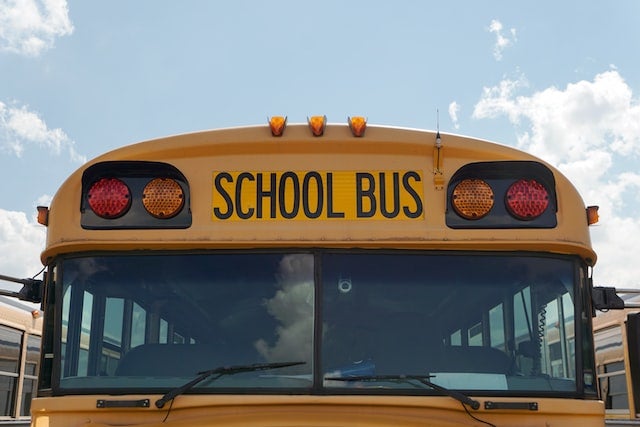Chronic Absenteeism task force looks at family engagement
Published 8:30 am Wednesday, November 22, 2023
|
Getting your Trinity Audio player ready...
|
Everyone admits that school districts across the state are dealing with chronic absenteeism. Students, and in some cases we’ve seen teachers also not showing up. Not too far from here, Charlottesville High closed on Friday, Nov. 17 after 27 teachers coordinated a “sick out day” in protest to recent events in their district and there were not enough substitutes to fill in. During this month’s Prince Edward County School Board meeting, members were told some students missed 30, 40 and 50 days of class last year alone. So since we know the problem, what’s the solution?
The state’s Chronic Absenteeism Task Force continued to look for an answer to that question in their second meeting, held on Nov. 7. While their October discussion focused on transportation, and sometimes the lack of it, this time the topic involved families. Namely, the way school districts do (or do not) engage with parents or guardians, to identify any problems and stop one or two absences from becoming a bigger problem.
At the last meeting, Dr. Chip Jones, superintendent at Cumberland County Public Schools mentioned that Cumberland’s biggest hurdle was communicating with families about sending students to school when they’re sick. During the pandemic, school districts had to tell students if they showed any symptoms to stay home. Now, students are encouraged to come even when they have light symptoms, like a runny nose or a slight cough. It sends mixed messages and leads to confusion, Jones pointed out. You can have parents who believe they’re following the district or state’s guidelines by keeping a student home even if they just have a cold.
State Superintendent Lisa Coons brought up a resource created by the group Attendance Works that explains to families what symptoms are acceptable and not for school. This resource can help families and schools be on the same page of what to do as cold and flu season is already here.
TAKING SOME TRAINING
Instead of just pointing people to a website, Jones shared how Cumberland staff develop a relationship with families. Touching base with families each time a student is absent, he argued, can help show the importance of attendance and the schools can see if there are any needs that need to be addressed to get the child to school. Jones mentioned how the Cumberland staff received customer service training with the Farmville Area Chamber of Commerce to make sure that interactions with families were building these positive relationships.
Keith Perrigan, superintendent at Wayne County Public Schools, echoed the need to talk with parents. But beyond that, he said that schools and the state itself needs to be able to act. If parents aren’t making sure students get to school, if there’s no outstanding health reason behind a student missing 50 days, then he argued those parents need to be held accountable. That’s something which could be tackled in next year’s General Assembly session, where bills could be filed codifying educational neglect as a charge.
WHAT IS EDUCATIONAL NEGLECT?
Educational neglect is defined by Loyola University as a parent’s failure to ensure their child’s educational needs are being met. That includes allowing a child to miss too much school, failing to enroll a child in school, failing to provide comparable home-based education if a child isn’t in school or keeping a child from special education services.
Right now, Perrigan said, if a student doesn’t show up to school for a few days with no contact with the family, there is nothing Social Services or anyone can do. Many times educational neglect stems from other types of neglect. Having this codified means that something can be done to make sure the student is ok and can get families the resources they need to make sure students get to school. This would happen after the schools tried other initiatives to connect with the families.
But Jones cautioned when the state talks about “offering resources”, there needs to be funding attached. Otherwise, if the Assembly just passes that idea down to the county level, there’s a good chance some counties won’t be able to help.
“When I think about rural communities, because that’s where I am and that’s where I’ve been, I think about the resources when parents and families were referred to a FAP Team (Family Assessment and Planning),” Jones said. “There are funds available for parent mentors and parent aids that go into the homes of families and teach them the different routines (but) a locality always doesn’t have funding for that. So, I think that there needs to be state funding that makes these resources available (to everyone) because that can be a game changer.”
REWARD VERSUS DISCIPLINE
Another topic discussed was reward versus discipline. If students face too much discipline for tardiness and absences, they are more likely to not show up at school at all. Coons mentioned a study done by Attendance Works, out of John Hopkins University, that looked at how incentives work when it comes to attendance. She suggested that there should be a reward system based on good or improved attendance with unique rewards that students actually want.
“One of the downfalls is only recognizing perfect attendance,” said Coons. “Because once a child misses they never get the opportunity to be recognized.”
But beyond offering rewards for students, Jones suggested making sure the school was somewhere the staff wants to be too. He noted there’s no perfect science to it, but if the staff feels valued and wants to be there it will naturally translate to the students also wanting to be there and feeling valued. When the families see that the schools want the best for their students they will want to make sure school is a priority.
That’s what drove the shutdown at Charlottesville High, as teachers didn’t feel safe, let alone valued. They had multiple fights taking place at the school, one of which involved an adult who came onto campus. This had become an ongoing issue, ever since the district eliminated school resource officers or a police presence of any kind at its buildings in 2020. Now Charlottesville officials are talking about reconsidering the lack of a police presence. It’s not just the students who need to feel valued, Jones reminded the task force, it’s the teachers and staff as well.
WHAT’S NEXT?
No decisions were made, as this was just the second meeting of the group. The group will meet again in December, with a goal of developing a series of actionable items to present to both the governor and next year’s General Assembly.



